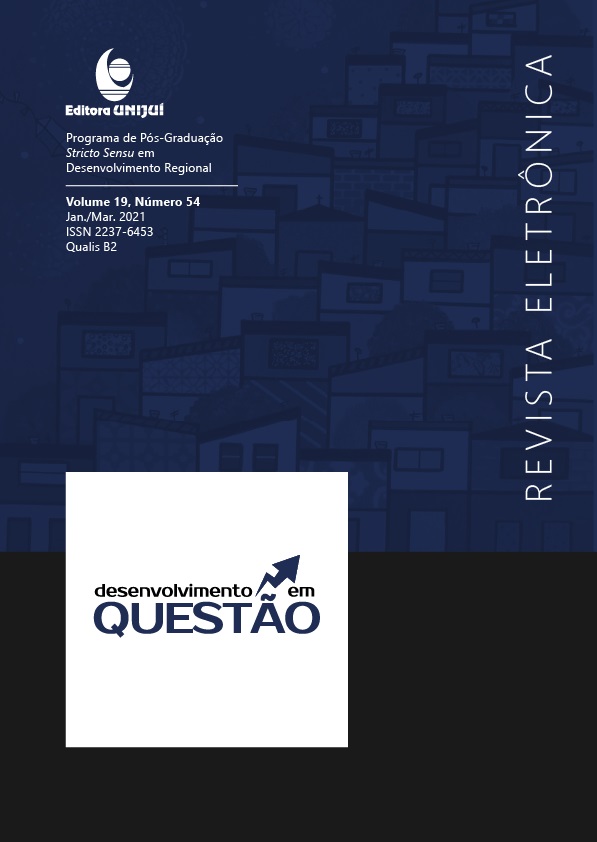DECENTRALIZATION, TERRITORY AND REGIONALIZATION OF HEALTH SERVICES: CONTEXTUAL ANALYSIS OF THE MUNICIPALITIES OF GUARATINGUETÁ AND APARECIDA IN RRAS-17, SP
DOI:
https://doi.org/10.21527/2237-6453.2021.54.298-320Keywords:
Public Health Policy. Unified Health System(SUS).Territory.Abstract
Starting from the need for an overview of SUS itself, ists history, principles and guidelines, is was intended to add to the understanding of this need, a conceptual incursion on health and territory and an empirical approach to the municipalities of Aparecida and Guaratinguetá, SP, through the description of statistical and factual data, in order to contextualize and identify their relative position in RRAS-17. This study, in addition to being comprehensive and descriptive, adopted the bibliographic and documentary analysis as the main methodological procedures. It was evidenced that the decentralization proves to be a political and management strategy on which municipalities rely for the implementation of the SUS. The territorialization process assumes a relevant role for the strengthening of the healthy system, because it is a dimension of the policy and methodology of organization of managers and professionals. In relation to regionalization, it has become equally important in the process of consolidating the SUS service network, as it produces new institutionalities and defined roles for managers of regional and municipal systems, in the coordination and planning for the construction of differentiated models for the implementation of public policies and territorial-based programs. Efforts have been observed by managers, and advances have been noted in the municipalities analyzed regarding the reorganization of local primary care, due to the implementation of the Family Health Strategy, although the need for creation of mechanisms is still observed so that, in fact, the potential of the SUS is fully appropriate for the consolidation of changes in the universal, equitable and integral health care model to the population.
Downloads
Published
How to Cite
Issue
Section
License
By publishing in Revista Desenvolvimento em Questão, authors agree to the following terms:
All works are published under the Creative Commons Attribution 4.0 International License (CC BY 4.0), which allows:
Sharing — to copy and redistribute the material in any medium or format;
Adaptation — to remix, transform, and build upon the material for any purpose, even commercially.
These permissions are irrevocable, provided that the following terms are respected:
Attribution — authors must be properly credited, a link to the license must be provided, and any changes made must be indicated.
No additional restrictions — no legal or technological measures may be applied that legally restrict others from doing anything the license permits.
Notices:
The license does not apply to elements that are in the public domain or covered by legal exceptions.
The license does not grant all necessary rights for specific uses (e.g., image rights, privacy, or moral rights).
The journal is not responsible for the opinions expressed in the articles, which are the sole responsibility of the authors. The Editor, with the support of the Editorial Board, reserves the right to suggest or request modifications when necessary.
Only original scientific articles presenting research results of interest that have not been previously published or simultaneously submitted to another journal with the same purpose will be accepted.
Mentions of trademarks or specific products are intended solely for identification purposes and do not imply any promotional relationship by the authors or the journal.
License Agreement (for articles published from 2025 onward): Authors retain the copyright to their article and grant Revista Desenvolvimento em Questão the right of first publication.











